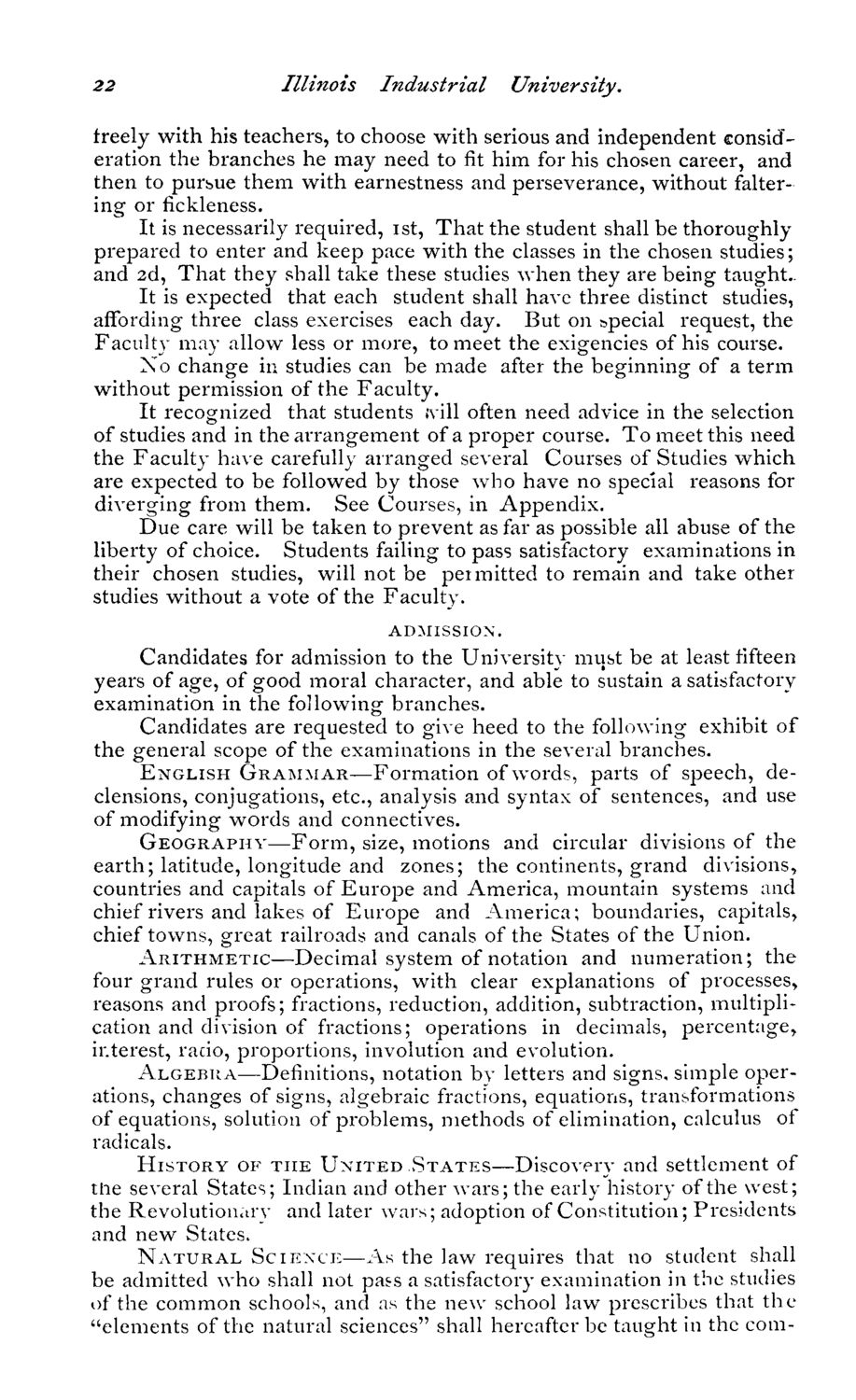| |
| |
Caption: Course Catalog - 1874-1875
This is a reduced-resolution page image for fast online browsing.

EXTRACTED TEXT FROM PAGE:
22 Illinois Industrial University. freely with his teachers, to choose with serious and independent consid"eration the branches he may need to fit him for his chosen career, and then to pursue them with earnestness and perseverance, without faltering or fickleness. It is necessarily required, ist, That the student shall be thoroughly prepared to enter and keep pace with the classes in the chosen studies; and 2d, That they shall take these studies when they are being taughtIt is expected that each student shall have three distinct studies, affording three class exercises each day. But on special request, the Faculty may allow less or more, to meet the exigencies of his course. Xo change in studies can be made after the beginning of a term without permission of the Faculty. It recognized that students .rill often need advice in the selection of studies and in the arrangement of a proper course. To meet this need the Faculty have carefully arranged several Courses of Studies which are expected to be followed by those who have no special reasons for diverging from them. See Courses, in Appendix. Due care will be taken to prevent as far as possible all abuse of the liberty of choice. Students failing to pass satisfactory examinations in their chosen studies, will not be permitted to remain and take other studies without a vote of the Faculty. ADMISSION. Candidates for admission to the University must be at least fifteen years of age, of good moral character, and able to sustain a satisfactory examination in the following branches. Candidates are requested to give heed to the following exhibit of the general scope of the examinations in the several branches. E N G L I S H GRAMMAR—Formation of words, parts of speech, declensions, conjugations, etc., analysis and syntax of sentences, and use of modifying words and connectives. GEOGRAPHY—Form, size, motions and circular divisions of the earth; latitude, longitude and zones; the continents, grand divisions, countries and capitals of Europe and America, mountain systems and chief rivers and lakes of Europe and America; boundaries, capitals, chief towns, great railroads and canals of the States of the Union. ARITHMETIC—Decimal system of notation and numeration; the four grand rules or operations, with clear explanations of processes, reasons and proofs; fractions, reduction, addition, subtraction, multiplication and division of fractions; operations in decimals, percentage, interest, racio, proportions, involution and evolution. ALGEBRA—Definitions, notation by letters and signs, simple operations, changes of signs, algebraic fractions, equations, transformations of equations, solution of problems, methods of elimination, calculus of radicals. H I S T O R Y OF T H E U N I T E D STATES—Discovery and settlement of the several States; Indian and other wars; the early history of the west; the Revolutionary and later wars; adoption of Constitution; Presidents and new States. N A T U R A L S C I E N C E — A s the law requires that no student shall be admitted who shall not pass a satisfactory examination in the studies of the common schools, and as the new school law prescribes that the "elements of the natural sciences" shall hereafter be taught in the com-
| |